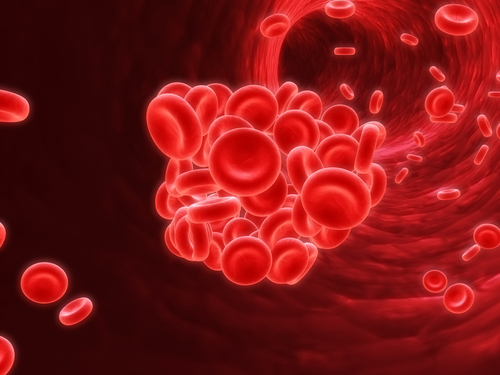Drugs are categorized into classes based on their biochemical effects — stimulants, depressants, hallucinogens, and inhalants. You may be wondering, where does cocaine fit in this list? Cocaine is a stimulant. Learn more about the differences between these two categories of drugs as well as the short and long-term effects of cocaine addiction.
What Is Cocaine?
Cocaine is a dangerously addictive, powerful drug made from the leaves of cocoa plants. Cocaine is illegal in the United States and is a street drug. Other names for cocaine include coke, blow, and nose candy. It is usually available as a fine white powder, and users will smoke, snort, inject it, or rub it into their gums. It is also available in a crystalized rock form, which is known as “crack cocaine.”
Dealers can combine cocaine with heroin or amphetamines. This practice is called “speedballing” and is more dangerous than using cocaine by itself. Mixing fentanyl into cocaine is becoming more common as well, which is particularly addictive and deadly and leads to many overdose deaths.
Cocaine is a Schedule II drug. Schedule II drugs are highly addictive with a potential for abuse. This class of drugs causes severe physical and psychological dependence, with many users requiring professional treatment to get clean.
Connect With Us Now
Reach out to us now for immediate support, or let us know the best time to contact you through our confidential callback service. Your journey to healing is just a conversation away.

Stimulant Drugs
Central nervous system (CNS) stimulants are drugs that speed up the body’s systems, particularly the brain and spinal cord. These drugs increase alertness, motivation, cognition, attention span, and physical performance. While it boosts mood, sometimes the side effects result in aggressive behavior.
Stimulants are “uppers” because they energize the user. Some of the most common stimulants include nicotine, caffeine, methamphetamine, and some forms of diet drugs. While the effects of these drugs improve cognitive focus, they also come with significant side effects, especially when taken illicitly.
Depressant Drugs
Central nervous system (CNS) depressants decrease neurotransmission levels, which reduces arousal and stimulation. Depressants have the opposite effect of stimulants, and people use them to slow down the brain and induce feelings of calmness and relaxation. Doctors sometimes use prescription depressants like benzodiazepines to treat insomnia, anxiety disorders, seizures, and panic attacks.
The most commonly used depressants are alcohol, cannabis, heroin, benzodiazepines, and barbiturates. Combining alcohol with prescription depressants can cause impaired judgment, dangerously slow breathing, and even respiratory arrest.
Cocaine: A Stimulant vs. Depressant?
Cocaine is a stimulant drug because it speeds up the central nervous system and increases energy and alertness. Cocaine works by increasing levels of dopamine, norepinephrine, and serotonin in the brain.
What Are the Immediate Physical and Psychological Effects of Cocaine?
Cocaine is a recreational drug known for its euphoric and energizing effects. Once it is snorted (or rubbed into the gums), the effects are almost instantaneous, and the user experiences an intense high and becomes very talkative, alert, and able to perform tasks more quickly. It also decreases the need for sleep. Some people turn to cocaine for these specific reasons, especially if they work in a fast-paced, high-stress environment.
Cocaine also decreases appetite, which makes it appealing to those wanting to lose weight. While people use cocaine for these effects, they do not last very long, and the “comedown” effects can be very uncomfortable. Users develop an intense craving for cocaine, and the onset of psychological and physical dependence due to stimulant addiction is rapid.
The immediate psychological effects of cocaine are:
● Euphoria
● Increased energy levels
● Excitability
● Paranoia
● Panic and anxiety
It is common for users to engage in violent, risky, or erratic behavior when using cocaine. It can also make users angry and aggressive, leading to potentially serious legal trouble.
The immediate physical effects of cocaine include:
● Raised body temperature
● High blood pressure
● Irregular heartbeat
● Enlarged pupils
● Muscle twitches
Snorting cocaine causes significant damage to the nasal cavities and throat. When injected, cocaine can lead to serious physical consequences, including scarring and collapsed veins. Injecting any drug puts a user at higher risk of contracting bloodborne illnesses and infections, including HIV and hepatitis C.
Read more: Cocaine Tolerance: Health Risks, Warning Signs, and Recovery

Long-Term Effects of Cocaine Use
Long-term cocaine use can result in significant psychological, financial, and physical harm to the user. Cardiovascular damage can result from chronic abuse of powder and crack cocaine. These conditions include:
- Blood clots
- Heart attack
- Stroke
- Permanent hypertension
- Irregular heart rate
Additionally, cocaine use can result in long-term damage to the nose and mouth. When snorted, the mucous membranes in the nose will receive less blood flow, causing tissue damage. With continuous cocaine use, a hole in the septum may form, resulting in a collapse of the nose structure and breathing problems.
Take Our Addiction Quiz for Recovery Insights
Long-Term Effects On The Respiratory System
Snorting cocaine can cause mucous membrane damage through the sinuses and lead to respiratory issues. However, most respiratory problems brought on by long-term cocaine use are caused by smoking it. Crack cocaine users are particularly susceptible to eosinophilic pneumonitis, also known as “crack lung.”
Symptoms associated with this condition are:
- Increased white blood cells
- Pain
- Wheezing
- Cough
- Black-tinged sputum (discolored mucus)
Freebasing cocaine can also lead to
- Chronic cough
- Respiratory distress
- Asthma
- Pulmonary edema
Additional Long-Term Effects On The Body
The longer someone uses cocaine, the more they increase their risk of long-term damage throughout the body, including the brain. When cocaine use continually restricts blood vessels, blood flow to the brain becomes compromised. Over time, this leads to brain damage, increasing the risk of aneurysms and strokes. Seizures, cerebral atrophy, and inflammation of the blood vessels are also possible. Users may start to experience changes in their physical movements, including tremors, muscle weakness, and sporadic movement.
Restricted blood flow also compromises gastrointestinal health. While reduced appetite, nausea, stomach pain, and constipation can be short-term effects of use, these conditions can become permanent. Ulcers and necrotic bowel can also develop. If a user overdoses on cocaine, liver damage is possible, especially if mixed with alcohol. Permanently increased blood pressure can damage the kidneys and lead to kidney failure.
Read more: How Long Does Cocaine Stay In Your Hair? How Hair Analysis Works
Cocaine Withdrawal Symptoms
Once someone becomes addicted to cocaine, withdrawal symptoms will occur once they stop using it. Cocaine withdrawal is often intensely uncomfortable, especially for people who have used it long-term. Withdrawal symptoms include:
- Agitation and restlessness
- Vivid, unpleasant dreams
- Cravings
- Muscle aches
- Tremors
- Depression
- Anxiety
- Fatigue
- Increased appetite
- Thoughts of suicide
The cravings and depressed mood associated with cocaine withdrawal may last for several months, especially if you’re stopping after heavy use. Because cocaine withdrawal can be severe, it is usually necessary to safely manage detox in a medical facility.
Are You Covered For Treatment?
Oasis Recovery Center partners with numerous private insurance providers. Our team is committed to assisting you in quickly and effortlessly verifying your insurance coverage for treatment.

What Treatment Options Are Available for Cocaine Use?
If you suspect you or someone you know meets the criteria for cocaine abuse, there are many options available for successful stimulant recovery.
Medical Detox
Medical detox is a necessity for many people who struggle with cocaine addiction. Clients feel supported and safe while in a professionally staffed medical detox facility. Medical detox allows your body to remove all traces of cocaine while under observation. This process usually lasts 7 to 10 days, depending on your circumstances. Detox specialists are medically trained in administering medication, additional supplementary treatments and holistic methods intended to restore you to optimal health. After completion, you will transition into a specified treatment program that meets your needs.
Addiction Treatment
Depending on the program, your treatment will consist of a partial hospitalization, intensive outpatient, or residential program. Each program will immerse you into your new environment to help you develop healthier coping skills you will use during recovery. Your days are structured to include group activities, workshops, counseling sessions, and even free time.
Holistic Therapy
Holistic therapy addresses a client’s emotional, physical, spiritual, and mental needs. Components of holistic therapy are included throughout the process to help you bring your body back to balance. Clients in recovery will take part in holistic activities, such as:
- Art therapy
- Meditation
- Yoga
- Breathwork
As you participate in these activities, you’ll become more aware of your thoughts and feelings, fostering a sense of calmness and inner peace.
Aftercare Planning
A temporary stay at a treatment center is usually not enough to maintain sobriety, especially in early recovery. Aftercare planning is a vital component of any treatment center. Once a client gets ready to transition from an addiction program, their case managers will work with them to select the right continuing treatment program for them. Your program could be shorter or longer, depending on your circumstances. As you prepare to leave, you and your recovery team will create an action plan for recovery to prevent relapse. This plan will include several components to identify your goals, what to do when triggers arise, and how to avoid a relapse.
Cocaine Withdrawal Support In Asheville, NC
If you or someone you know is abusing cocaine and want to safely overcome cocaine withdrawal symptoms, contact Asheville Detox Center. Our center is the only private medical detox facility in Asheville, NC, and our partnerships with local and nearby addiction treatment centers make it easier to transition directly into full-time care. Call, email, or fill out a form today to get started or learn how our treatment process works. The path to recovery begins here.







